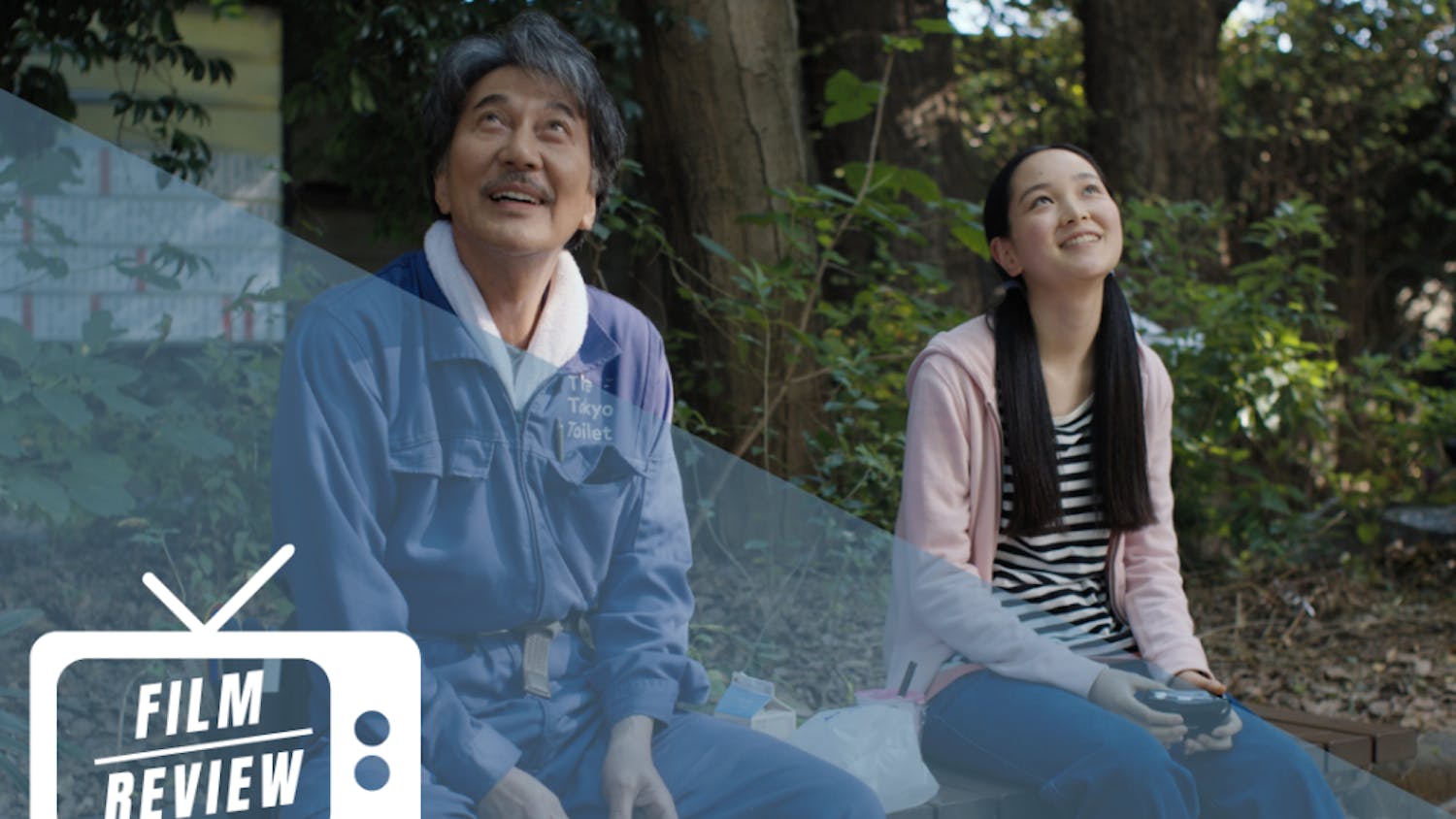While watching director Mamoru Hosoda’s newest film, “Mirai,” it’s difficult to escape an overwhelming sense of familiarity. The movie manages to find details and intricacies of family dynamics that make its characters feel well-crafted and realistic, yet the nature and structure of its narrative feel predictable (with some added anime style). “Mirai” can, at some points, just glance off brilliance, but these insightful and beautiful moments are few in comparison to the film overall, which can be repetitive and difficult to sit through. The result is a heartwarming film that lacks profundity.
“Mirai” begins with a young boy named Kun (Moka Kamishiraishi) playing at home as he waits for his parents to return with his new baby sister, Mirai (Kaede Hondo and Haru Kuroki), named with the Japanese word for “future.” Things seem great at first, but they quickly deteriorate as Kun struggles to share his parents’ affection for Mirai. The film begins to show a more imaginative side as Kun periodically ventures into his yard and, in a state of childish imagination or miraculous time travel, finds himself observing family members from different eras. At this point, the film becomes formulaic and proceeds in a cycle: familial incidents, resulting in Kun throwing a temper-tantrum and repeating “I don’t like Mirai” or “I don’t like mom” or whichever family member the section of the film focuses on, followed by a brief temporal adventure giving Kun some outsider perspective allowing him to understand the importance of family.
The individual relatives, from the future version of Mirai to Kun’s great-grandfather from the post-WWII years, are all interesting. There is a realism to their performances and dialogue that keeps them grounded, allowing the film (at times) palpability and a thoughtfully designed microcosm that extends into the greater theme of family. There are moments (especially a scene with the great-grandfather later in the film) that feel brilliant in the way they build on character traits and histories the audience learns along the narrative. As interesting as every other character is, the audience is forced to follow whiny, monotone Kun instead, as he bawls and shouts his way through the film.
While Kun’s character makes sense in the context of the story, he makes the film vexing and painful to watch at worst, and at best, is just an observer who manages to grow a little by the end of the story. If the story focused on exploring his own emotions in a way that accurately reflects the complex nature of Kun’s emotional shock, the film would have had more substance to drive it forward. Rather than an honest effort to better understand Kun’s internal struggle from his perspective, though, the film delivers a character that is merely, on face value, a first child growing accustomed to their role as an older sibling. Though there might have been a better way to explore this topic and concept, Kun’s character arc makes the story a sweet sentiment we have heard many times before.
The story itself cannot seem to balance bluntness and subtlety. This is not necessarily a fault in moments where the two aspects can be properly used to contrast or complement each other, but they sometimes put the film at a dangerous imbalance between excellent character development and an overblown melodrama. It does not help that, while some scenes can be visually captivating and representative of a genuine childlike imagination, others have obvious computer-generated imagery character animation awkwardly standing out against hand-drawn backgrounds, adding visual inconsistency on top of tonal inconsistency.
“Mirai” may have flaws, but that is not to say it isn’t an enjoyable experience. The sequences with more love and care put into them manage to showcase the best of what filmmakers aimed to achieve with this film, and overall the execution of the premise lends the movie enough imagination and cuteness to make it entertaining and heartwarming. While it is possible this film is not as distinguished compared to other anime films released in recent years, “Mirai” still stands out in its own way. As obnoxious as Kun can be, the time the audience gets to spend with his family still feels genuine and worthwhile.





